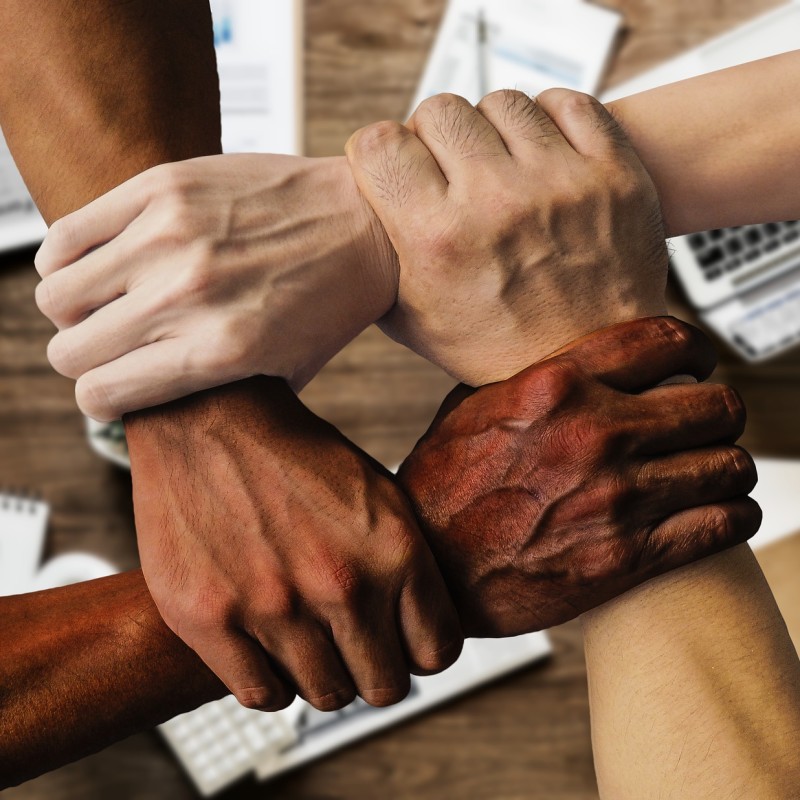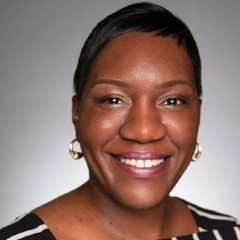All Things Admin Joins ASAP. Learn More ›
Championing Diversity, Equity & Inclusion as a Leadership Partner: A Conversation for Executive Assistants
August 17, 2021

The year 2020 was defined by disruption around the world. COVID-19 virus shut down offices, schools, and businesses. The deaths of George Floyd, Breonna Taylor, Ahmaud Arbery, Tony McDade, Elijah McClain, and other Black Americans precipitated social protests by millions of Americans and shined a light not only on policing practices but also on institutional racism and bias.
Per Fast Company: “Corporate social responsibility programs pledged their allegiance to the Black community and poured millions into civil rights and social justice organizations…(now working from) a glossary of terms like microaggression, systemic racism, and privilege. And books on antiracism took up seemingly permanent residence on the New York Times bestsellers list.”
At the same time, we saw dismal evidence of unequal access to healthcare and childcare; attacks on Asian-Americans, Muslims and Jewish communities and transgender individuals – all of which broadened the conversation about diversity, equity, and inclusion (DEI).
In general, a social and cultural reckoning and awakening took place. There has been renewed energy to facilitate meaningful change in how society, and organizations, will address racial injustice and social inequities and facilitate opportunities for real inclusion.
Along with these difficult and sensitive conversations has come pressure on organizations, institutions, businesses, and individual employees to consciously and publicly go beyond lip service to address bias and discrimination more completely.
Surveys by Deloitte indicate that many employees feel that public promotion of equity and inclusion have not been matched by internal corporate practices. In terms of workplace diversity, equity, and inclusion, recognition of the problem isn’t enough. To carry out and benefit from change, this newfound awareness must result in concrete action.
The APC 2020 Panel
Organizations and the people within them must facilitate change and be part of the solution. This is why, at the Administrative Professionals Conference 2020, four women with DEI expertise and an understanding of the administrative profession sat down (virtually) to explore how executive assistants and all administrative professionals can champion DEI within their organizations.
What follows is a summary of their comments and ideas. Some suggestions and reactions of those who attended the panel discussion have been incorporated as well.
The Panelists
Our panel included the following changemakers:
Moderator Melba Duncan is the founder and CEO of The Duncan Group, Inc., a retained search firm specializing in the placement and training of Chiefs of Staff, executive assistants, and C-Suite talent.
As a corporate executive, Shirley Davis has served in leadership roles at Fortune 100 companies. She is a global workforce management expert and a certified leadership coach who specializes in strategies for achieving leadership excellence and in building high-performing and inclusive workplace cultures where all talent can thrive.
Chi Chi Okezie is the owner and producer of SIMPLEnetworking, LLC. She is determined to change the way we think about networking. Clients learn how to polish their professional approach, improve their communication, sharpen their networking skills and build their networks. Chi Chi provides exceptional training, consultations and events for business networking, diversity and inclusion and cultural awareness.
As the CEO and co-founder of Black Admin Magic and a licensed coach, Nadine King’s mission was to develop and elevate Black admins and EAs. She also served as the Executive Assistant to the Provost of Spelman College and the President of Staff Council. Note: With great sorrow, we must share that on May 18th, 2021, April 'Nadine' King lost her battle with Covid-19 at the age of 42. Her friends attest that Nadine lived every single day to the fullest. She was a loving wife, mother, daughter, sister, friend, Pastor, CEO, mentor, and much more. A powerful woman, Nadine made history by launching the National Association of Black Administrative Professionals (NABAP.) Her in-depth knowledge in her profession pushed her to be a voice for people of color within the administrative community.
Diversity, Equity, Inclusion: What Do They Mean?
Diversity is about representation or the make-up of an entity. Every workplace can have diversity. It’s a matter of whether it is nurtured, embraced, and consciously cultivated. Diversity brings underrepresented voices, thoughts, and experiences to the table, thus inspiring increased creativity, problem-solving and innovation, and adding value to all aspects of the workplace.
Despite decades of initiatives aimed at reducing discrimination in the workplace, equity continues to be a significantly lacking in society and in the workplace. Equity must be incorporated across the system – in its policies, strategies, and values – in how we recruit, pay, and promote. There must be equal access to engagement, to opportunities, and the ability to thrive and contribute for all, not just for some. Equity speaks to whether or not all people have a fair shot to succeed, while keeping in mind that people are different and need different types of resources and adaptation to contribute to their greatest potential.
lnclusion is about how well the contributions, presence, and perspectives of diverse groups of people are valued, solicited, and integrated into an environment. A workplace that includes multiple races, gender identities and orientations, nationalities, ethnicities, and religions, but in which people do not feel safe to express their views or in which only the views and contributions of limited groups are valued and carry authority or influence, may be diverse, but it is not inclusive. Inclusive workplaces heighten trust and lead to higher employee engagement, productivity, and performance.
To open the panel discussion, Melba Duncan posed the question: What will get us where we need to be?
Dr. Davis suggested that we need to affect both workplace systems and individual actions and behaviors. In terms of the system: we need to make sure it is seen as everyone’s responsibility throughout the organization…to recognize that we are all responsible. Leadership across the organization is imperative. We need leadership from the top; from those who are managing and those who are supporting. DEI efforts work best when everyone is on board! Individually, we all have personal power; we can exercise it and demonstrate leadership.
Other panelists noted that systems are more equitable when they are more transparent. In the workplace, for example, if we share salaries and compensation so that everyone knows, that transparency helps lead to equity. When companies get to equity and fairness, they won’t have to tell people not to talk about their compensation. Decisions need to be made based on standards--not based on who the person is or on whether someone is more like us, and standards need to be transparent. The world of hiring is a great place to start; we should be looking at talent and ability.
Organizations need to make diversity a conscious goal in hiring, as teams are composed, and in management. They need to develop a culture where people feel it is safe to speak up and safe to be themselves. EAs can help advocate for a top-down approach that includes outreach. They can also show how an organization can also, for example, work to ensure that all of its vendors also employ DEI initiatives and policies, and that their vendor selections reflect their DEI mission.
Thoughts on How We Can Champion DEI
The panelists agreed that we need to encourage, bring out, and facilitate underrepresented voices. Highlights from this conversation included:
Nadine King focused on the need to start with ourselves: “You have to embody diversity, through how you think about diversity and what’s in your heart. You have to take it to heart and believe in it; become what I call a humble disruptor.”
The concept of the humble disruptor is someone who finds opportunities to challenge and lead others in a quiet and yet determined manner; a leader who is patient, hopeful, courageous, optimistic, and kind. When you advocate change, you may be seen as a rebel because you want to do things differently; you may encounter resistance.
Most people are comfortable with their familiar ways of doing things and of thinking. When you shake things up, you are likely to upset some people. As you describe what needs to be fixed or adapted, you may encounter anger, upset, and frustration. Don’t take it personally; it’s not about you. Make sure you have a support system – find your tribe!
Now is a moment of opportunity. It is up to each of us to own the issue, to find the path to the solution, to point out issues. Being a champion of DEI is complex; it takes ethics and integrity. Our words and actions have to be aligned and consistent.
We need to stand up for what is right and reach out to bring others into the fold. If we are inclusive in our thinking and processes, then we expand the field. We need to see ourselves as part of the solution and speak up. We all have a role to play. Find ways to be a DEI champion in your life—not just your professional life. Advocacy isn’t just about pointing out what is not right; it is not just critical. Advocacy is also talking about what can be.
Learn to recognize and illuminate toxic culture and dysfunctional behaviors; call them out. It is important to have some of these honest and difficult conversation at work—we need to be willing to be uncomfortable; don’t avoid talking with one another and particularly with marginalized groups. Sometimes, the conversation is awkward, and that’s OK.
Chi Chi said, “I’m an avid supporter of networking as a support system and to mobilize us to the next step. Progress is a process; in order to keep it going and get us where we need to go, we need strong support systems: we need allies, mentors, supporters, and sponsors.” Another important consideration: broaden your network beyond a close circle; establish a diverse and inclusive network.
Mentoring relationships help people navigate barriers. Melba encouraged that when you are mentoring a person of color or an employee otherwise marginalized, see their talent. Approach it from their talent not their color or identity. Help them understand where the barriers are. Let them know you’re going to bring up their name, suggest them for projects, etc. Ask people what they need to advance in their roles.
Recognize that we all have some unconscious bias; we all come to conclusions based on impressions that are imperfect or incomplete. We tend to be most comfortable with those who are like us. Be aware of pre-conceived ideas or stereotypes. Our first impressions are often riddled with bias. Second guess your first impressions. Don’t make 90% of your decisions on the 10% of a person you see at first.
If you feel marginalized, support yourself with positive self-talk. Pick yourself up and remind yourself of your purpose. Become skilled and artful at sharing what you do. Become an advocate—for yourself and for others. Help others to see themselves as talented, to see themselves as smart and important. Black women face a double challenge. They are underrepresented and not typically inclined to promote themselves. Lift people up. Don’t allow others to minimize or be dismissive of you or others.
Recognize the influence and power you do have. If you are putting together events, think about diversity as it related to speakers, vendors, and sites.
Ask yourself: How can I help create opportunities for those who are marginalized and whose voices are underrepresented? How do I encourage those around me? How can I get leadership buy-in?
To get support for change, you need to show how others will benefit; be able to articulate how the organization benefits from a commitment to DEI. Think of it almost like a business plan. What is the benefit of diverse experiences and perspectives? What happens when the playing field is level, offering opportunities and fair play to all? What do we gain when employees feel supported, included, and valued?
To build a winning workplace, the organization must have the kind of culture that attracts talent. Particularly among younger workers, organizations are being held to a standard of DEI commitment across a broad group of marginalized workers. Organizations need to make sure that talented people at every level want to work there.
The key to getting support is to start with what people already believe or are committed to. Align your diversity values with values the company already has in place. What is it that your executive/leadership values and how is DEI aligned with that?
Always have confidence about what you stand for. Seek out what you don’t know. Use your platform and be vocal. Consistently surface DEI priorities, needs and issues. Build a diverse network around you; support and look for support from people who are not like you. There is power in diverse knowledge and perspectives. Make those who are overlooked part of the conversation; draw them in.
Conclusion
To say 2020 was an unprecedented year would be an understatement. The world saw a pandemic, social justice movements, natural disasters, and more. The ongoing Covid-19 pandemic triggered a health crisis like no other—changing how we work and how we interact. The ensuing economic crisis and historic downturn left many businesses shut down, and millions unemployed.
Following a number of high-profile killings of Black people, the Black Lives Matter movement brought issues such as systematic racism, police brutality, and social inequity to the forefront once again. Violent attacks based on ethnic, religious, and sexual orientation/identity put a spotlight on hate crimes and intolerance.
However, in this unique time, we have also seen barriers to change soften and sometimes fall altogether. Leaders are not only more open to DEI workplace initiatives, they are also hungry for them.
Renewed enthusiasm for corporate social responsibility programs exists, and we are seeing an evolving transformation of the workplace. There is great hope that the steps forward recently taken will continue and that organizations will move meaningfully toward diversity, equity and inclusion—to the benefit of all.
ASAP recognizes the critical nature of this work. In support of that, we have made a recording of this session available for free to all ASAP members. You can listen to the DEI panel discussion here.
Join the Conversation
Welcome to the ASAP Circle, a community platform for peer-to-peer conversation on trending topics, professional challenges, and shared experiences. We even have designated spaces for weekly Tuesday Coffee Breaks.









